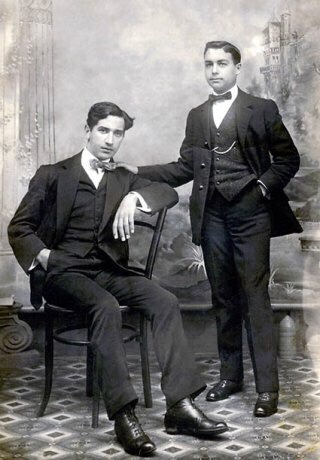JOSÉ BETHENCOURT PADILLA
Although José had an intense literary and poetic work, which combined with the journalistic, it is the figure of his brother Pedro Bethencourt Padilla that has been recognized more by the part of historiography. José Bethencourt, however, from the outset had a long career in La Voz de Junoia, of which he was one of his promoters. Between November 1921 and May 1924, 195 issues were published. Later, he was the director of Ideal Gomero, in La Laguna.
It should be noted that the Canarian press at this time was an open window to the debate of ideas, artistic, literary and cultural, that marked modernity and the avant-garde as La Rosa de los Vientos. José Bethencourt was in contact with this magazine and which undoubtedly meant a revulsive synchroniser of the aesthetic watch of the Canary Islands with and towards Europe. His poetry, although it did not sprout from the avant-garde it does participate in this magazine sometimes siding with an intimate position and, although that is not rupturist in the avant-garde sense, it turned on itself, participating in the aesthetic constants of what has been called the Regionalist School of La Laguna.
There is in his work a certain dichotomy between avant-garde and tradition. José Bethencourt’s poetry is characterized by a deep religiosity, with philosophical aspects that link his work with pantheistic skills of San Francisco de Asís and other Christian renaissance thinkers, but at the same time; his rhetorical sobriety, appreciable in many works, such as De tu voz un eco, is another characteristic of his poetry. A resounding austerity, typical of monastic asceticism, which on the other hand, does not implicitly lead to an intimate disenchantment with the environment that, in fact, he does have in any of its productions.




